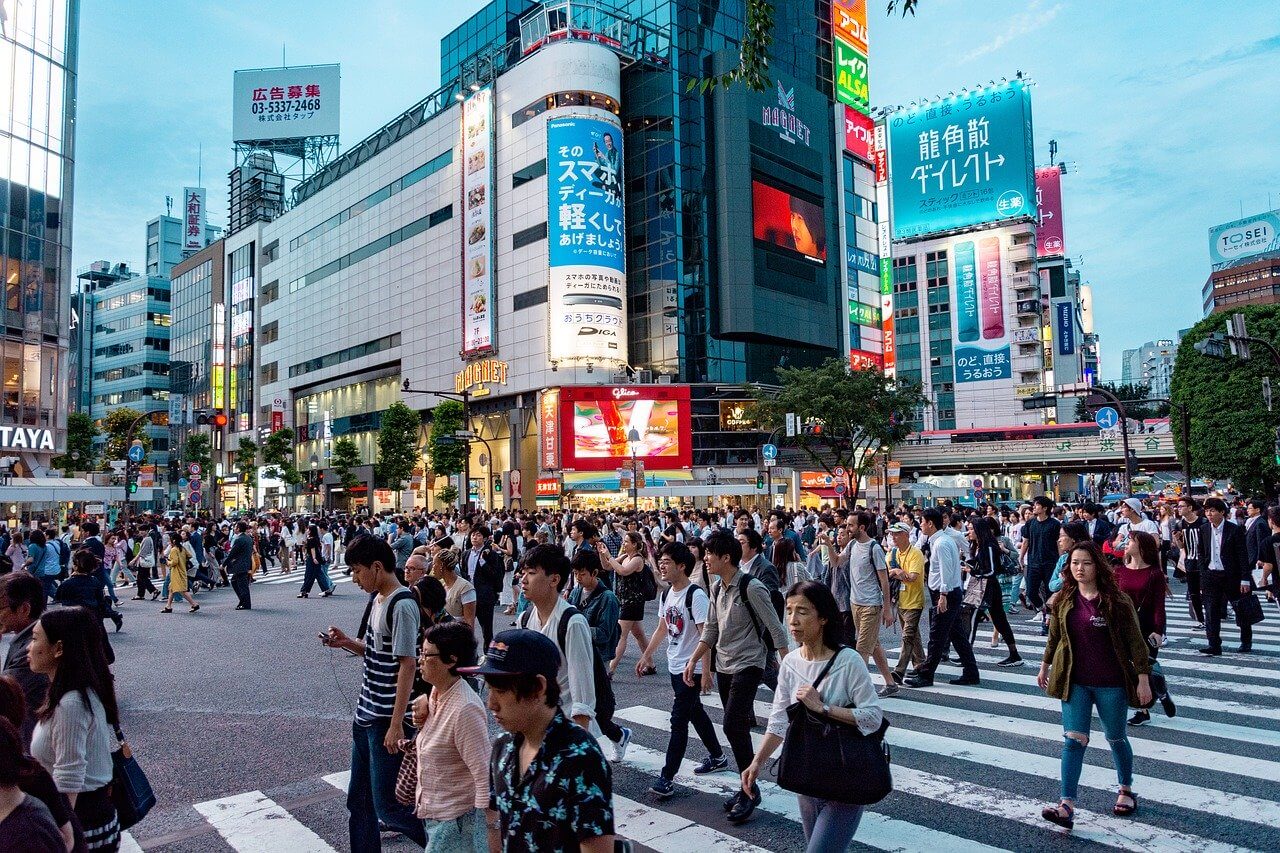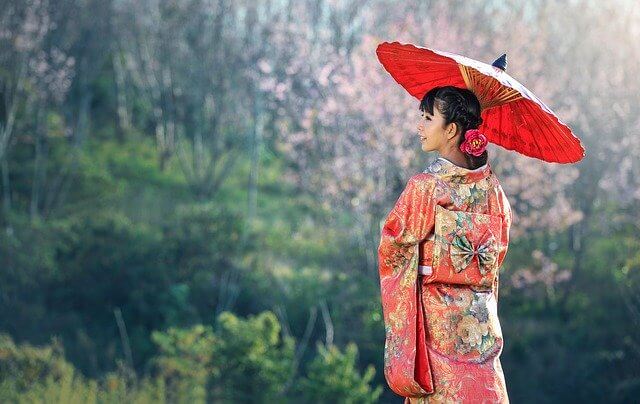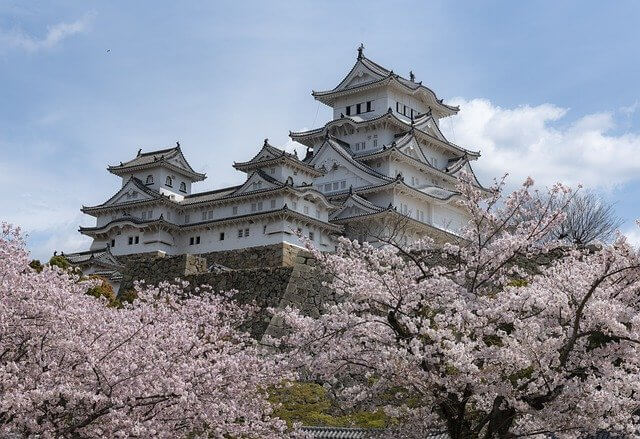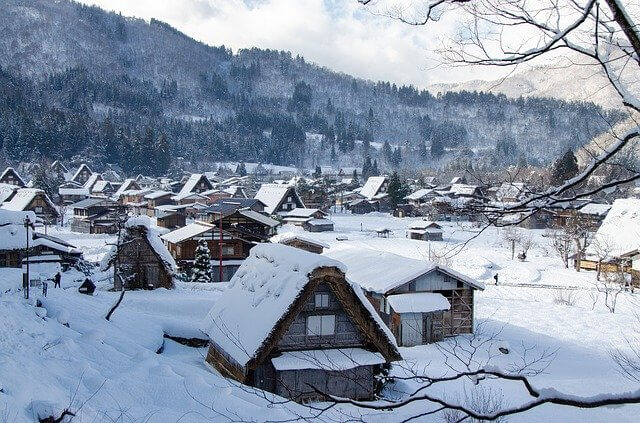Japan is a country made up of 6852 islands located in East Asia. And they are found in the Pacific Ocean. The name Japan means “the origin of the sun”.
For this reason, this country is also known as the land of the rising sun. The boundaries of Japan are: to the west the Sea of Japan, China, North Korea, South Korea and Russia. To the north it borders the sea of Okhotsk, to the south with the East China Sea and Taiwan and to the east it borders the Pacific Ocean.
The capital of Japan is Tokyo and is located on the island of Honshū. In addition in this zone the greater amount of inhabitants in area relation of the whole world is located; More than 30 million inhabitants reside in Tokyo.
Currently, Japan has a total population that exceeds 127 million inhabitants, although this number is decreasing year after year, meaning that it maintains a strict birth control to avoid overcoming the historical population index of this country.

Characteristics Of Japan
1. History
The history of Japan is crossed by times where the country has been completely isolated and others where it has allowed entry and exchange with nearby countries.
From the first century, the island was inhabited, according to the writings of ancient China. From the second century, Japan has been under different empires that marked its course as a nation, and its characteristic customs but Japan maintained periods of foreign influence and others of prolonged isolation. It was in the second century and until the year 1868 that Japan was ruled by different soldiers who received the name of emperors. However, the period of isolation that characterized until the second century, reappeared in the seventeenth century. It lasted until the middle of the nineteenth century.
From the nineteenth century and for two uninterrupted decades, Japan was plunged into internal conflicts until the year 1868 was proclaimed the Empire of Japan, restoring the internal order of these islands.
Japan participated in the First and Second World War, which positioned it in a place of war privilege with respect to other countries.
However, since 1920 Japan faced several problems that it had to face by questioning the democratic solutions in this regard; corruption of the governments of the day, accusations, etc. In addition, as of that year, the economic benefit of the postwar world from which Japan had been favored, was lost after the recovery of post-war Europe.
Currently has an economic growth that places it in third place worldwide.
2. Relief
Since Japan is constituted by more than 6000 islands, its relief presents peaks. About 84% of the territory is mountainous and its highest peak is Mount Fuji with 3,776 meters.
In addition Japan is on a relatively active tectonic plate so this country is an area of earthquakes and tsunamis. However, Japan also has meadows and plains but these are not very extensive.
3. Weather
It has a rainy climate and high humidity, with a marked difference between the 4 well-marked seasons. This is a product of the fact that said country is located at a distance from the equator.
Therefore, the climate that presents is temperate, except in the south of Japan that can present some areas with subtropical climate.
4. Flora
The flora of Japan is varied and abundant; It has more than 17,000 species, among which stand out, Japanese chestnuts, yours, red pines, Korean pines, birches and ash trees. In addition you can find white and red plums and bamboo plants.

5. Fauna
The raccoon dog is characteristic of Japan.
The fauna of Japan includes about 132 species of mammals, 583 of birds, 66 species of reptiles, fish and batrachians, among which the Asian black bear, the brown bear, the wild boar, deer, antelope, the badger, the raccoon dog, foxes, wild cat, sea lion, japanese wolves, coppery pheasant and green and azor azure eagle.
6. Religion
Japan has not remained hermetic or distant in terms of openness to different religions. Thus he presents what was called syncretism, as the attempt to reconcile different religions or doctrines. In this way, the religions practiced in Japan allow a variety of variants where God and Buddha are present.
Buddhism is considered the majority religion, although there are many who profess Taoism, Confucianism, Protestantism and Catholicism.

7. Population
Since a few decades ago Japan suffers from an overpopulation product of several axes:
It holds the third place in the world of longevity of life, where the average life is 87 years.
The average number of births is 1.3 children per woman.
8. Economy
Japan is a developed country. It is considered as the third largest economy in the world today. It is found after the economies of the United States and China, respectively. Its currency is the Yen and it is considered very strong worldwide, even stronger than the current dollar.
The main industries in Japan are: transportation, telecommunications, insurance, real estate, banking and retail sales. On the other hand it has a great advance in terms of the technology of motor vehicles and electronics.
As for the hour-wage of an average worker, Japan has one of the best salaries worldwide, and taxes are usually reduced compared to the rest of the world.
The land of Japan is not usually very fertile for cultivation; only 15% of the entire territory is. For this reason, this land is intended for the planting of cereals such as rice, vegetables or fruits.
9. Culture and Education
Japanese culture has a great influence of Asia, Europe and the United States, highlighting crafts such as pottery, origami, ikebana ukiyo-e, lacquers, dolls, among other arts. Also highlights Japanese cuisine, the ceremonial traditions of tea and the arrangement of gardens or decoration with swords (sabers).
Regarding education, Japan provides a system of nurseries or preschool up to 5 years inclusive of the child. It has a mandatory system for the primary and secondary level. It consists of 6 years for primary education and 3 for secondary education.
At the end of this second period, students can choose to move to a baccalaureate level that can be chosen from four different types of subjects that will help them in their life projects, although this period is not mandatory.
10. Politics
The Republic of Japan is a constitutional monarchy. Only people who are over 20 years of age are in civic conditions to vote by universal suffrage. Although the people do not choose the president, but rather the members of parliament who then vote for the president or prime minister. Thus the same position can last only a few months or several years.

The time that this prime minister remains in office will depend on the time in which he has the support of the parliament. Until 2008, Japan only maintained a single political party of great power; the Liberal Democratic Party, although there were smaller parties.
As of 2009, greater strength has been generated in less powerful political parties, causing the power of said party to diminish.